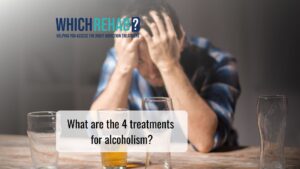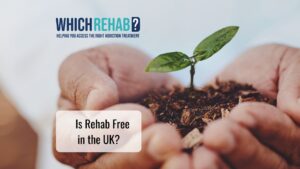Addiction aftercare is an extremely important part of your or your loved ones ongoing recovery from alcohol, drugs or a behavioural addiction.
Statistically, those who engage in an addiction aftercare programme once they have completed an alcohol or drug detox and rehabilitation, do far better than those who don’t.
Addiction aftercare helps to safeguard addiction recovery from a relapse in the early and vulnerable days of sobriety. It re-enforces recovery and helps to prevent complacency, which is one of the main reasons an individual in recovery from alcohol and drug addiction can relapse.
What Is Addiction Aftercare?
Recovery aftercare involves individual therapy, group therapy, recovery coaching and a safe space where an individual in recovery can talk about the things they are struggling with in confidence.
It may or may not involve peers, depending on the type of addiction aftercare you or your family member prefer. Which Rehab can arrange for a bespoke addiction aftercare programme that is low in intensity or high in intensity, to fit around other commitments and individual treatment needs
Addiction aftercare is considered to be a critical part of a comprehensive addiction rehabilitation programme and is conducted on an outpatient basis.
If you complete a residential rehab programme or an outpatient rehab programme, addiction aftercare can be arranged so that you or your family member in recovery continue to attend the rehab centre for ongoing addiction counselling and support.
It can also be arranged on a one to one basis in the community. This is the beauty of bespoke recovery aftercare, it can be as flexible or as disciplined as you need it to be.
ARE YOU LOOKING FOR REHAB?
Our team of rehab and addiction specialists are on hand to talk to you day or night. Let us help you take back control.
Do I Really Need Addiction Aftercare?
It is sensible, we feel, to arrange addiction aftercare as part of your complete bespoke addiction rehabilitation programme.
Not arranging an addiction aftercare programme following on from intensive addiction treatment or a drug and alcohol detox, can leave you feeling very vulnerable and unsure of hope to cope with life on a daily basis.
Prior to a medical detoxification, alcohol and drugs would have been your solution to life’s problems and a way of self-medicating emotions. Without alcohol and drugs, learning to live life on life’s terms can prove very difficult without professional guidance and support.
Feeling alone and unsupported in the early days of recovery can easily lead you to return to your old dysfunctional ways of managing yourself and everyone around you.
Make no mistake, there is a reason you will have abused alcohol and drugs to a self-destructive level; in recovery, you will soon discover the reasons why you became an alcoholic or drug addict.
Thankfully, addiction aftercare can assist in teaching you how to implement new and healthier coping mechanisms so that your old solution will no longer appeal.
Benefits of Addiction Aftercare
Addiction aftercare offers many benefits and no negatives.
Benefits of an addiction aftercare programme include:
- Continued support and treatment from addiction professions
- Helps to safeguard against alcohol or drug addiction relapse
- Re-enforces the principles of a recovery programme
- Continues to address behavioural issues that could potentially lead to relapse
- Assists with the transition from active addiction to living life clean and sober
- Encourages individual growth in recovery
- Assists in addressing issues within personal relationships and rebuilding and gaining the trust of family and loved ones
There are many more benefits to implementing a planned addiction aftercare programme to seamlessly follow on from detox or rehab.
Please call us today to discuss this further and how we can help meet your individual addiction aftercare treatment needs.





